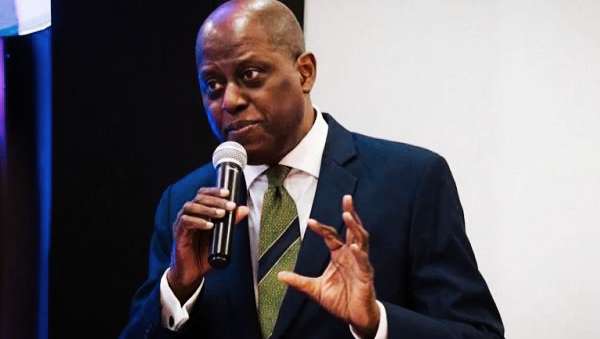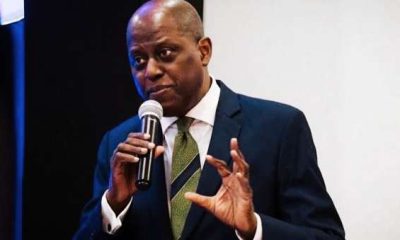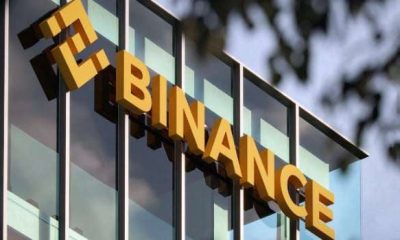Business
Confusion in banking sector over forex windfall tax, as their helmsmen disagree

The board meeting of Bank Directors Association of Nigeria (BDAN), taking place today is expected to end with a resolution that will either end or escalate the debate over the proposed windfall tax on the foreign exchange gains of commercial banks operating in Nigeria.
While a declaration accepting the proposal will place BDAN on the same page with some prominent bank chiefs already backing the Federal Government, a stance suggesting otherwise may not only aggravate the cold war among industry bigwigs on the matter, but may also attract the sledge hammer of Nigerian authorities to dissenting voices.
BDAN had last week distanced itself from the views of some bank chairmen on the proposed foreign exchange windfall tax. The Chairman of the association, Mr. Mustapha Chike-Obi, who disclosed this via his X handle, noted that BDAN would communicate its views on the issue after its board meeting on August 12 (today).
A windfall tax is a one-time tax levied by governments on companies that have benefited from extraordinarily high profits, often due to favorable economic conditions or market anomalies.
Such taxes are designed to capture the surplus profits that exceed the typical earnings expected under normal circumstances. Governments implement windfall taxes to address economic inequalities and redistribute wealth, particularly in times of fiscal deficit or to fund public welfare programmes.
However, in Nigeria, the proposed windfall tax has elicited conflicting reactions within the banking sector. Proponents argue that the tax is necessary to ensure that the wealth generated by banks during periods of economic boom is shared more equitably across society. They believe it could provide the government with additional revenue to invest in critical infrastructure and social services.
Critics, however, contend that a windfall tax could deter investment and innovation within the banking sector. They argue that such a tax might be perceived as punitive, leading to reduced profitability and potentially impacting the overall health of the financial system. There is also concern that the tax could be passed on to consumers in the form of higher fees and interest rates, indirectly affecting the broader economy.
In mid-July, President Bola Tinubu introduced a one-time 50 per cent windfall tax aimed at the substantial foreign exchange gains reported by banks in 2023.
He proposed this tax as part of an amendment to the 2023 Finance Act, seeking to generate additional revenue for crucial infrastructure, education, and healthcare projects under his Renewed Hope Agenda. The Senate has since increased the windfall tax to 70 per cent to be applied to FX gains of banks from when the naira was devalued till the 2025 FY.
But this did not go down well with bankers and other critical stakeholders in the Nigerian financial sector, who have asked the Federal Government to reconsider the tax. According to them, introduction of the levy would be counterproductive given the critical contributions of the banks to the ongoing economic reforms and the current banking sector recapitalisation exercise.
In its reaction, the Chartered Institute of Bankers of Nigeria (CIBN), stated that the implementation of the levy could lead to reduced investment, decreased liquidity, and increased costs and negatively impact Nigeria’s economic growth and development.
In a statement signed by its President, Professor Pius Olanrewaju, CIBN noted that the forex windfall tax could worsen currency volatility due to reduced market participation, with a potential to destabilize the economy.
The Institute stated that the forex windfall tax could amount to double taxation, as banks have paid 30 per cent income tax when they filed 2024 tax returns.
CIBN said: “Will this not amount to double taxation? Or the tax already paid be deducted from this new imposition? This proposed tax will violate fairness and equity in taxation as banks are the only entity singled out for this payment. This is discriminatory. What about other sectors or businesses that have recognized the same foreign exchange gains in their books in 2023?”
Controversial endorsement
In the past week, at least three bank chiefs had expressed support for the move by the FG to impose a 70 per cent windfall tax on the foreign exchange earnings of banks from 2023 to 2025.
In a statement, the Chairman of FBN Holdings, Mr. Femi Otedola, said the proposal aligns with the ongoing efforts to reform the Nigerian banking sector to enhance economic stability and integrity within the country’s financial institutions.
According to him, the revenue generated from the forex segments harmonisation policy implemented in June 2023 could be channelled into essential public services, such as healthcare, education, and infrastructure, benefiting all citizens and helping to reduce social inequalities.
He stated, “The recent announcement of a windfall tax on the extraordinary profits earned by Nigerian banks is a significant first step towards achieving these goals. The consolidation of various foreign exchange rate systems into a single investors’ and exporters’ window led to the depreciation of the naira and substantial increases in the value of bank assets denominated in United States dollars.
“This extraordinary gain should be redistributed to fund critical infrastructure development, education, healthcare access, and public welfare initiatives, addressing the intense pressure on public finances and alleviating the cost-of-living crisis many Nigerians face.”
He added that the financial statements of manufacturing, telecoms, and SMEs indicated that many of those companies may not be able to pay corporate tax for at least the next two years, as they were currently showing negative equity.
“It is essential for the government to step in and provide support to bridge these gaps, ensuring revenue generation and fostering economic development,” the bank chief maintained.
The business mogul also berated the banking executives for ownership of private jets, saying, “I am, particularly, critical of the culture of flamboyance, especially the ownership and operation of private jets.
“Nigerian banks are spending an estimated $50m annually just on maintaining private jets, with over $500m gone into purchasing nine private jets by four banks. This level of extravagance significantly erodes public trust in our financial institutions and diverts crucial resources away from vital areas, such as operational efficiency, technological innovation, and customer service.”
Also, after a meeting with President Bola Tinubu, on Wednesday, the Chairman of the United Bank for Africa (UBA) , Mr. Tony Elumelu, noted that mutual prosperity was vital to sustaining the system. He said where businesses thrive, jobs are created, and foreign and local investors benefit, leading to a prosperous society.
“We believe in prosperity, in creating jobs and employment for our people, in democratizing prosperity, and in ensuring that Nigerians have access to a good life. So, today, we spoke about the windfall tax. We support the government.
“We believe that, where extraordinary income has made a part of, it should go towards helping to alleviate poverty in the country, which is what the government intends to do. We support that, and we just believe that we should ensure that no one segment suffers, that the government is able to continue to create jobs, and that businesses are also able to do well because we need mutual prosperity,” he declared.
Similarly, the Chief Executive, FCMB Group, Ladi Balogun, in his remarks after the meetings, said, “The purpose of the meeting was to ensure that this government’s reform agenda is well transmitted to not only the banking sector but also the investment community. We sought to ensure that we were all on the same page.
“We also sought to ensure that we are also playing our role as a banking system and as an industry to channel back some of the gains we have made into the general economy. Now, we believe that this government and this administration are very much pro-investment and pro-growth, and they demonstrated that by listening to the concerns of the industry.”
However, Chike-Obi in his reaction said, “I have read the personal views of some bank chairmen on the windfall tax issue. Those views do not represent the banking community. BDAN will communicate its views after our board meeting on the 12th (August), on this and other very important issues concerning our community.”
Compulsory compliance
Meanwhile, the Federal Government is proposing the imprisonment of principal officers of banks that fail to comply. It also proposed a penalty of 10 per cent of the levy withheld or not remitted annually and interest at the prevailing CBN minimum re-discount rate.
The amendment states: “The Federal Inland Revenue shall assess the realized profits, collect, account, and enforce payment of levy payable under section 30 in accordance with the powers of the Service under the Federal Inland Revenue Service (Establishment) Act 2007; “and in the exercise of its functions in 32(a) above, may enter into a deferred payment agreement with the assessed banks, provided that such deferred payment agreement is executed on or before December 31, 2024.
“Any bank that fails to pay the windfall profit levy to the service and has not executed a deferred payment agreement before December 31, 2024, commits an offense and shall, upon conviction, be liable to pay the windfall profit levy withheld or not remitted in addition to a penalty of 10 per cent of the levy withheld or not remitted per annum and interest at the prevailing Central Bank of Nigeria minimum rediscount rate and imprisonment of its principal officers for a period of not more than three years.”
Income redistribution
Justifying the windfall tax while appearing before the finance committees of both chambers of the National Assembly on the Amendment of the Finance Bill, 2024 recently, Chairman of the Federal Inland Revenue Service (FIRS), Zacch Adediji, explained that the windfall tax was not a new tax imposed on banks, but taking from the already made profit.
Adedeji said, “These are the gains that you have without any contribution from you, without any value addition, which has had an adverse effect on others. And who are these others? If you look at the report of all manufacturing entities in the last one and a half years, you will discover that a lot of the registers recorded huge loss coming from exchange transactions.
“The other flip of this law is recorded in banks. Anywhere in the world, your duty as the government is to redistribute the wealth to sustain the progress and prosperity of the nation.
“So the loss suffered by manufacturing, as a result of these foreign exchange gains, which is being recorded in the bank, it is what the government seeks to redistribute. And that is why we have this levy, which is done everywhere.”







